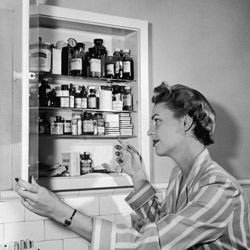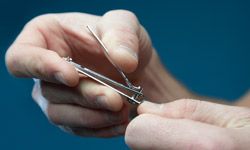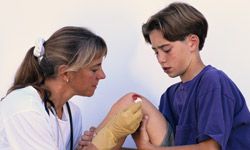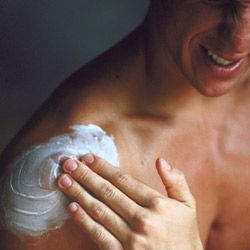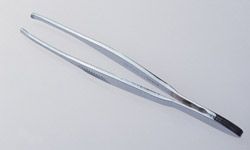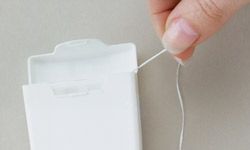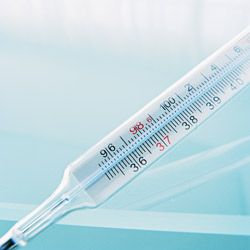Headache, upset stomach, sinus problems, menstrual pain, athlete's foot, dandruff, lip conditions, dry skin and the common cold -- chances are you've had one if not more than one of them. They're the most common, everyday health complaints, and while you may not be able to prevent them with a little at-home preparation, you can knock each of them out for the count and just maybe avoid a visit to your doctor. The secret? A well-stocked medicine chest.
First things first: You've got to take stock of what's in there already -- and then clean and restock it annually. Toss out old supplies and anything that's damaged (damaged container, unreadable or missing labels, broken or discolored pills) or past its expiration date. This is also the time to get your prescription and over-the-counter (OTC) medicines out of there, and not just because your guests might snoop. A "medicine" chest isn't actually for storing your medicines, however convoluted that may sound. The humidity in your bathroom isn't good for medicine, most of which can deteriorate quickly in moisture -- you may like a steamy shower, but your pills don't. Store them instead in a cool, dark and dry place in another room.
Advertisement
If medicine doesn't belong in a medicine chest, what does? We've compiled a list of the 10 essentials, from symptom relief to first aid, along with tips for homes with kids and pets.
